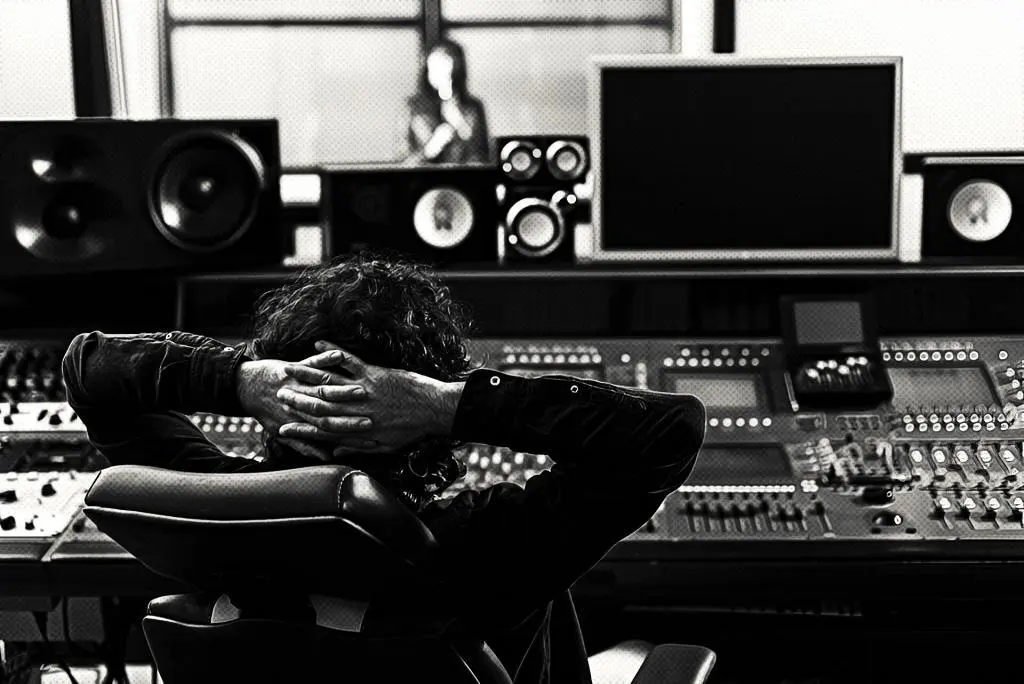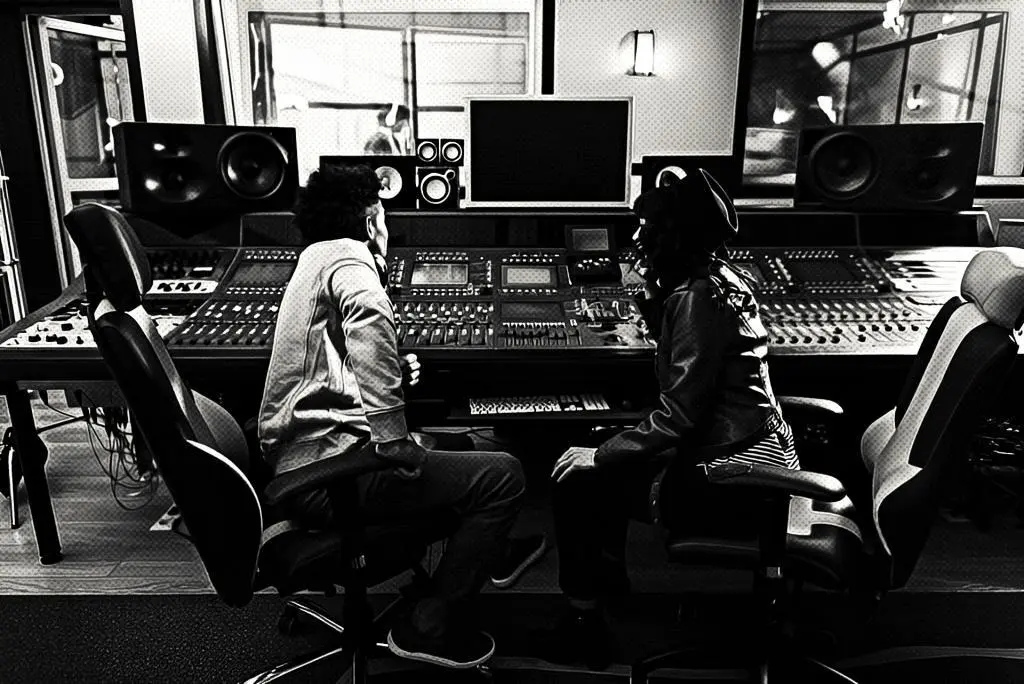Hey there! Let’s talk about something that we all love – music. We all have our favorite songs that we listen to on repeat, but have you ever stopped to think about what makes those songs sound good? What sounding good really means in music production?
Now, let’s be honest, sounding good is a subjective term and what one person might find amazing, another might not be impressed by. However, there are some general criteria that can be used to assess the quality of a recording. These include things like the mix and master, sound quality, maybe dynamic range, or how well the emotion of the song is communicated.
We’ll go deeper into what each of these aspects means and how they contribute to a recording sounding good. But, before we get into the technical details, let’s talk about the importance of subjective opinions in music production. After all, music is an art, and art is all about personal expression and creativity.

What Does Sounding Good Really Mean: Table of Contents
The Ear before the Gear for Sounding Good
Equipment plays a significant role in music production, as it is the primary tool used to capture and manipulate sound. From microphones and preamps to compressors and equalizers, each piece of gear has a specific purpose in shaping the sound of a recording. However, it is important to note that while equipment is a crucial aspect of the recording process, it is not the only determining factor in achieving a high-quality recording.
The skill and experience of the producer are equally important in determining the final sound of a recording. A skilled producer can use even the most basic equipment to create a well-produced recording, while an inexperienced producer may struggle to achieve a good sound even with the most advanced gear.
It is also worth noting that while certain equipment may have a specific sound or character that can contribute to the overall tone of a recording, there is no single piece of equipment that will guarantee a good sound. The overall quality of a recording is a result of many factors, including the performance of the musicians, the acoustics of the recording space, and the skill of the producer in capturing and manipulating the sound.
While equipment is an important aspect of music production, it is ultimately the skill and experience of the producer that determines the quality of the final product. The best producers understand that the ear is more important than the gear, and that the ability to capture and manipulate sound effectively is more important than having the latest and greatest equipment.
Technical Aspects of a Good Song
When it comes to music production, there are some technical aspects that are essential for a recording to sound good. These qualities are not only important for the listener’s enjoyment but also for the musician’s creative expression.
One of the most important is a balanced mix. This means that all the elements of the music, including vocals, instruments, and effects, should be balanced in the mix. A balanced mix ensures that each element can be heard clearly and doesn’t overpower the others, resulting in a more enjoyable and cohesive listening experience.
Clear sound is also essential for a good recording. This means that each sound is distinct and can be heard clearly without any distortion or muddiness. Clarity allows the listener to fully appreciate the nuances of the music and is particularly important for vocal recordings, where the lyrics need to be understood.
A wide dynamic range is important in a good recording. This refers to the difference between the quietest and loudest parts of the recording. A recording with a wide dynamic range will have more depth and nuance, allowing the listener to fully experience the emotional highs and lows of the music.
How to Make a Song Sound Good? The Elements of Production
When we listen to our favorite songs, we often take for granted the amount of work that goes into making them sound good. Good song production is a critical component of a successful track. Without it, a song may fall flat and fail to captivate its intended audience.
Music production is the process of creating and refining a song to make it sound good. Whether you are a professional musician or a hobbyist, good production is essential for making your music stand out and be successful. Poor production can detract from the quality of a song and hinder its success.
Music production is the process of creating a musical recording, starting from the inception of the idea to the final stage of distribution. The goal of music production is to create a polished and professional sound that can connect with an audience. While the quality of the songwriting and performance is vital, the production process plays an integral role in determining the final outcome. A well-produced song can grab the listener’s attention and convey the intended message, while a poorly produced song can fail to connect with the audience.
Good song production starts with a solid foundation of songwriting. It requires musicians to consider not only the sound but also the structure of their music, the lyrics, and the melody. The next steps include pre-production, recording, mixing, and mastering. Each of these elements plays a crucial role in making a song sound good, and they all work together to produce a high-quality final product.
- Songwriting is the foundation of music production. It is the process of creating a song from scratch, including the melody, lyrics, and overall structure of the music. It involves brainstorming, creating chord progressions, writing lyrics, and arranging the song in a way that fits the intended style.
- Pre-production is the process of preparing for a recording session. It involves selecting the right equipment, preparing the recording environment, and ensuring that the musicians are adequately rehearsed. Pre-production is an essential step because it can help to identify and address any issues that may arise during the recording process, resulting in a more efficient and effective recording session.
- Recording is the process of capturing the performance of the musicians in a recording studio or home recording setup. It involves using equipment such as microphones, audio interfaces, and recording software to capture sound waves and convert them into digital audio files. The recording process can vary depending on the type of instrument or vocal performance being recorded.
- Mixing is the process of balancing and enhancing individual tracks that have been recorded to create a cohesive final mix. It involves adjusting volume levels, panning, equalization, and adding effects such as reverb and delay to each track to create a full and balanced sound.
- Mastering is the final step in music production. It involves preparing the final mix for distribution by balancing and enhancing the overall sound of the track. Mastering includes finalizing the track’s overall EQ, compression, and volume levels, as well as adding metadata and creating the final file format for distribution.
Emotional Impact of a Good Recording
The emotional impact of a song can greatly affect the listener’s experience and connection with the music. A well-produced recording should effectively communicate the emotion and feeling of the song, whether it’s happiness, sadness, anger, or any other emotion the artist intends to convey. Emotion is a powerful tool that can help to make the music more relatable and memorable to the listener. A recording that successfully conveys the emotion of the song can make the listener feel as though they are part of the story being told.
When a listener can connect emotionally with a song, it can create a strong and lasting impression. A song that makes the listener feel happy can leave a lasting impression of joy, while a song that evokes sadness can be a source of comfort during difficult times. Music can also bring people together by creating shared emotional experiences. The emotional impact of a song can be so powerful that it can influence people’s moods and behaviors.

Attitude and Artistic Vision in Music Production
The attitude and artistic vision of a music producer can significantly impact the final product. The producer’s attitude toward the project can affect the level of commitment and energy put into it. An optimistic attitude can create a positive work environment that encourages creativity and innovation. On the other hand, a negative attitude can lead to a lack of motivation and result in a subpar product.
Similarly, the producer’s artistic vision can also affect the final product. The artistic vision is the producer’s creative concept for the project, including the sound, feel, and overall direction of the production. If the producer has a clear vision for the project, it can help guide the creative process and lead to a cohesive and well-executed final product. Conversely, a lack of artistic vision can result in a disjointed and unfocused product.
For example, two producers working on the same project with different attitudes and artistic visions may produce vastly different final products. A producer with a positive and energetic attitude may push the project to new heights, whereas a producer with a negative attitude may settle for mediocre results. Similarly, a producer with a clear and focused artistic vision can create a cohesive and compelling final product, while a producer without a clear vision may struggle to create a cohesive product.
Confidence in one’s own artistic vision is essential for a producer to produce a successful final product. A producer’s vision is their unique creative concept for the project, and it is what sets them apart from other producers. Without confidence in their vision, a producer may second-guess their creative choices and end up with a product that lacks coherence and fails to stand out.
Developing confidence in one’s artistic vision takes time and practice. It involves experimenting with different techniques and sounds to find what works best for the project. It also requires the producer to be willing to take risks and trust their instincts. Over time, with practice and experience, a producer can develop confidence in their creative choices and produce a unique and compelling final product.
Subjectivity in Evaluating What is Sounding Good
When it comes to evaluating a recording, what sounds good can be subjective and vary from person to person. Factors such as personal taste, cultural background, and individual experiences can all impact how someone perceives and evaluates a recording. What one person finds enjoyable or well-produced, another person might find unappealing or poorly executed.
For example, one person might appreciate a heavily compressed vocal sound in a pop song, while another person might prefer a more natural and dynamic vocal sound. Similarly, one person might value a recording with a lot of reverb and spaciousness, while another person might prefer a more upfront and dry mix. These differences in opinion can make it challenging to objectively evaluate a recording.
While it can be difficult to completely remove subjectivity from the evaluation process, there are some techniques that can be used to evaluate a recording more objectively:
- Compare the recording to other recordings in the same genre: By comparing the recording in question to other recordings in the same genre, you can get a better sense of how it stacks up against industry standards. This can help identify areas where the recording may be lacking or where it excels.
- Use technical analysis tools: There are a variety of technical analysis tools available that can help identify issues with a recording, such as frequency imbalances or phase issues. These tools can provide objective data that can help guide decisions about how to improve the recording.
- Get feedback from other professionals: By getting feedback from other professionals in the music industry, such as engineers, producers, or musicians, you can gain a more objective perspective on the recording. These professionals can provide valuable insights and feedback on the technical and artistic aspects of the recording, helping to identify areas for improvement.
Overall, while subjectivity will always play a role in evaluating a recording, using a combination of objective techniques and seeking feedback from others can help ensure that the evaluation process is as fair and balanced as possible.

